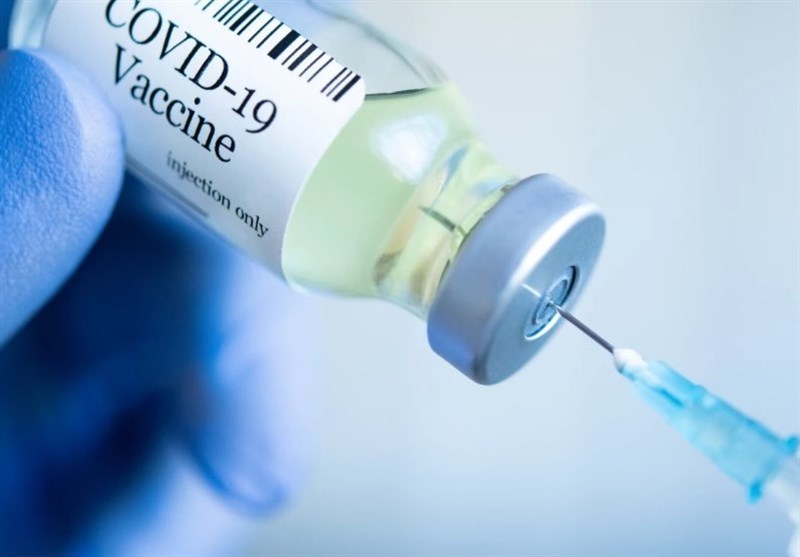New COVID-19 Vaccine Induces Immune Response
TEHRAN (Tasnim) – An experimental vaccine against the new coronavirus produced an immune response in early-stage clinical trials, data showed on Monday, preserving hopes it could be in use by the end of the year.
Initial human trial results for a promising COVID-19 vaccine have been been published in the journal The Lancet. The vaccine, developed at Oxford University, has so far been found to be safe and induce the two key immune responses needed to protect against coronavirus infection.
The Oxford COVID-19 vaccine, recently renamed from ChAdOx1 nCoV-19 to AZD1222, was developed incredibly rapidly, with Phase 1/2 human trials starting in April. The newly published preliminary data reports the results of a blind, randomized controlled trial testing the safety and immunogenicity of the experimental vaccine in 1000 subjects.
The cohort blindly received either AZD1222 or a meningococcal vaccine as control. The initial phases of human testing in a vaccine trial are designed to investigate how safe the new vaccine is and whether it triggers biomarkers associated with an effective immune response.
The data suggests the vaccine causes no serious adverse effects, although more than half of subjects did display mild to moderate side effects, including injection site pain, fever and fatigue. All these adverse effects resolved within 48 hours of treatment.
Looking at immune responses, the vaccine generated robust antibody and T-cell responses in all subjects with neutralizing antibodies detected in 91 percent of subjects one month after a single dose of the vaccine. A small cohort receiving a booster dose one month after the initial dose showed even stronger antibody responses.
T-cell responses were seen to peak around two weeks after a single dose of the vaccine. At the two-month follow-up those T-cell levels were seen to slightly decline. It is unclear at this stage what kind of long-term immunity the vaccine could confer, however, these two immune biomarkers induced by the vaccine are similar to what is seen in recovered COVID-19 patients.
"The immune system has two ways of finding and attacking pathogens – antibody and T cell responses,” explains Andrew Pollard, lead author on the new study. “This vaccine is intended to induce both, so it can attack the virus when it's circulating in the body, as well as attacking infected cells. We hope this means the immune system will remember the virus, so that our vaccine will protect people for an extended period.”
Researchers not affiliated with the Oxford vaccine are expressing cautious optimism after reviewing this new data. Although these results present exactly what one would hope to see at this stage in the development of a successful vaccine it is important to note it is too early to know whether this leads to protection from infection in the real world.
“The preliminary findings look very promising with responses to the vaccine similar to what is seen post natural infection,” says Beate Kampmann, from the London School of Hygiene and Tropical Medicine. “Whether this is what’s needed to protect against infection and/or disease cannot be established with these early-phase datasets.”
Oxford has joined forces with pharmaceutical company AstraZeneca to expand testing and lay the groundwork for mass manufacturing of the vaccine. A number of large-scale Phase 3 trials are already underway with tens of thousands of people enrolled across the UK, US, Brazil and South Africa. Over the next few months it's hoped these larger will deliver insights into how protective the vaccine actually is in real-world conditions.
Phase 3 vaccine trials generally take quite a long time. This is because researchers must recruit a cohort of subjects deemed to be at a high risk of contracting whatever disease is targeted by the vaccine, and then follow those subjects for months as they inhabit the real world. After a period of time the researchers can then compare the amount of infections between the vaccine and placebo groups to determine what real-world efficacy the vaccine has in protecting a person from infection.
Testing a vaccine by deliberately exposing healthy volunteers to a pathogen is known as a human challenge trial. There has been significant debate amongst scientists for several months over whether human challenge trials should be conducted to speed up the testing of COVID-19 vaccines.
A recent open letter directed to Francis Collins, director of the National Institutes of Health, called for broad deployment of human challenge trials for COVID-19 vaccine development. Co-signed by over 100 academics, scientists, and medical ethicists, the letter lays out several principles for safe oversight in this type of clinical trial.
Several members of the Oxford vaccine research team are also calling for human challenge trials to be run in parallel with the ongoing Phase 3 trials already underway. It has been reported that some Oxford scientists have already begun internal preparations for a human challenge trial that could commence later this year.
The new study was published in the journal The Lancet.





